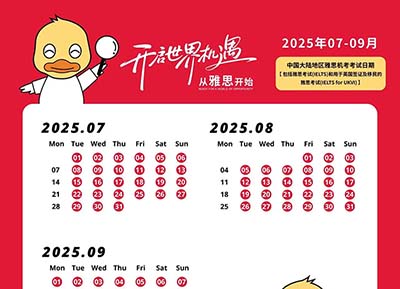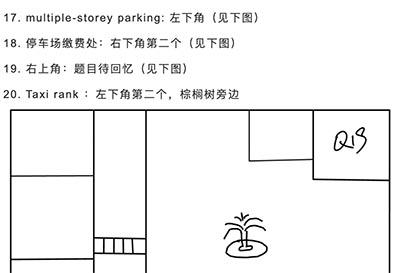首頁 >> 雅思學(xué)習(xí)資料 >> 雅思寫作>>正文
雅思語法:定語在寫作中的多樣化方式—介詞結(jié)構(gòu)
時(shí)間:2021-08-05
來源:網(wǎng)絡(luò)
作者:無
我們朗思教育雅思老師會(huì)定期給同學(xué)們分享雅思考試當(dāng)中的常考知識(shí)點(diǎn),本期我們繼續(xù)來給大家分享雅思常見語法知識(shí):定語在寫作中的多樣化方式—介詞結(jié)構(gòu),希望對(duì)備考的同學(xué)們有所幫助,另外如果需要雅思寫作機(jī)經(jīng)的同學(xué),也可以在線留言。
在前面的內(nèi)容當(dāng)中,我們也給大家講過如果老是用定語從句的時(shí)候,為了實(shí)現(xiàn)表達(dá)的多樣性和靈活性,不妨觀察定從句子的結(jié)構(gòu):1) 如果是主謂型,可用非謂語結(jié)構(gòu)替換;2) 如果是系表結(jié)構(gòu),即名詞+who/which/that+ be +表語(形容詞/介詞詞組),實(shí)際上我們可以把相容詞前置,寫成形容詞+名詞;如果定從中表語是介詞詞組則可直接用名詞+介詞詞組結(jié)構(gòu)。
舉例
Nowadays, learning a new language for the purpose of working in other countries seems to become more and more popular. Adults in need of money①or, why not, recognition are trying to pursue their happiness far away from home. Also, the hey days of employers looking not only for multi-skilled employees②, but they also want people who know more than their mother tongue③. Sooner or later, those who omitted learning more④ are prone to become jobless. (劍11 T3 考生大作文7分節(jié)選)
分析
本段中后置定語一共出現(xiàn)四次,如果按照我們平時(shí)語言輸出方式,我們可能都寫成了定語從句如 “Adults who are in need of money; employers who look not only for multi-skilled employees; people who know more than their mother tongue; those who omitted learning more”。但是,本段中考生在表達(dá)定語的時(shí)候用了三種語言表達(dá)方式,分別是介詞短語(①),分詞結(jié)構(gòu)(②)以及定語從句(③, ④),有效的實(shí)現(xiàn)了表達(dá)的多樣性和靈活性。因此,考官在語法項(xiàng)給出的評(píng)價(jià)是 “A variety of complex structures is used with some flexibility and accuracy. Grammar and punctuation are well controlled and error–free sentences are frequent”。
雅思寫作對(duì)語法達(dá)到6分以上的要求是句子表達(dá)的復(fù)雜性,多樣性,以及靈活性。在定語的表達(dá)上(后置定語),沒有說是哪一種結(jié)構(gòu)更高級(jí),反正就是不要只使用慣用的定語從句一種方式!定語從句,分詞結(jié)構(gòu)以及介詞結(jié)構(gòu)都要綜合運(yùn)用起來!
































